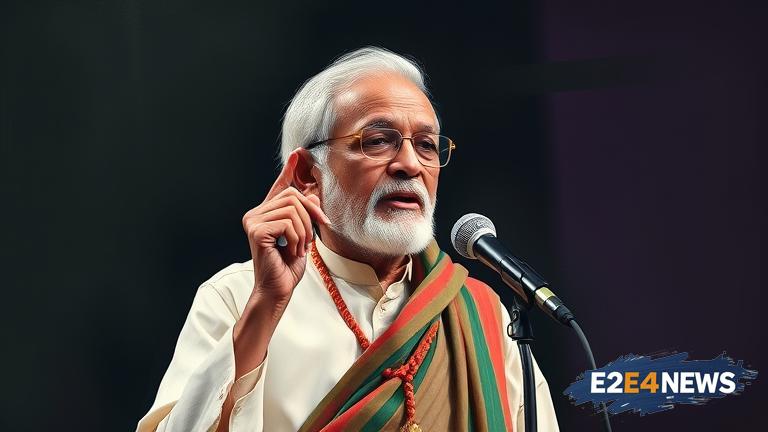Muhammad Yunus, the renowned Bangladeshi economist and Nobel Peace Prize laureate, has been a vocal advocate for social and economic reform in his home country. Recently, he emphasized the need for a reform revolution to address the various challenges facing Bangladesh. According to Yunus, the country’s current economic model is not sustainable and has led to widespread poverty and inequality. He believes that a new approach is necessary to create opportunities for all citizens and ensure a more equitable distribution of resources. Yunus has been a pioneer in the field of microfinance, and his Grameen Bank has empowered millions of women and low-income individuals through small loans and financial services. However, he acknowledges that more needs to be done to address the root causes of poverty and inequality. The Bangladeshi government has been criticized for its handling of the economy, with many arguing that it has failed to implement effective policies to promote growth and reduce poverty. Yunus’s call for reform is seen as a response to these criticisms, and he has proposed a range of measures to stimulate economic growth and improve living standards. These include investing in education and healthcare, promoting entrepreneurship and innovation, and implementing policies to protect the environment. Yunus has also emphasized the importance of good governance and transparency in government, arguing that corruption and nepotism are major obstacles to development. He believes that a reform revolution can help to create a more just and equitable society, where all citizens have access to opportunities and resources. The concept of a reform revolution is not new, and it has been advocated by various thinkers and leaders throughout history. However, Yunus’s approach is distinct in that it emphasizes the need for a grassroots, people-led movement for change. He believes that the key to successful reform is to empower local communities and give them the tools and resources they need to drive development. This approach is reflected in the work of Grameen Bank, which has established a network of community-based organizations and initiatives to promote economic development and social change. Despite the challenges facing Bangladesh, Yunus remains optimistic about the country’s potential for growth and development. He believes that with the right policies and approaches, Bangladesh can become a model for sustainable and equitable development, and that its experience can be replicated in other countries. The international community has recognized Yunus’s contributions to development and poverty reduction, and he has received numerous awards and honors for his work. However, he remains committed to his mission of promoting social and economic change, and he continues to advocate for reform and innovation in Bangladesh and beyond. In recent years, Bangladesh has made significant progress in reducing poverty and improving living standards, but much work remains to be done. The country still faces significant challenges, including climate change, corruption, and inequality, and it will require sustained efforts and commitment to address these issues. Yunus’s call for a reform revolution is a reminder that development is a continuous process, and that it requires the active participation and engagement of all stakeholders. By working together and promoting a culture of innovation and entrepreneurship, Bangladesh can overcome its challenges and achieve its full potential. The country’s experience can also provide valuable lessons for other countries, and it can serve as a model for sustainable and equitable development. As the world grapples with the challenges of poverty, inequality, and climate change, the ideas and approaches advocated by Yunus are more relevant than ever. His commitment to social and economic change is an inspiration to people around the world, and his work continues to have a profound impact on development policy and practice.





